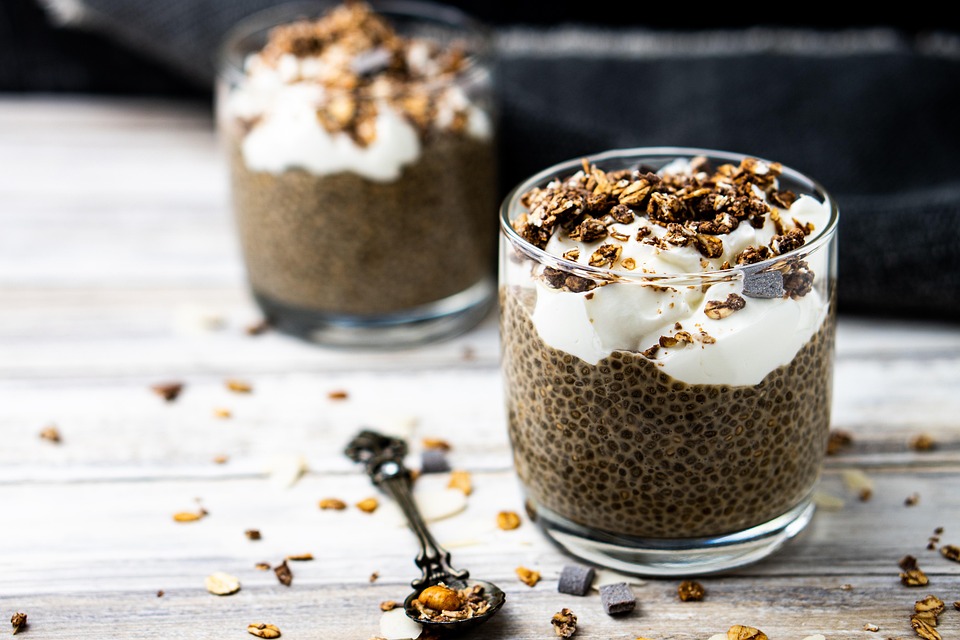Nutrition Myths Debunked: What You Really Need to Know
Nutrition is a field that often finds itself shrouded in myths and misconceptions. With the rise of social media influencers, diet fads, and endless information available online, it’s challenging to sift through what’s scientifically valid and what is not. This article aims to debunk some of the most prevalent nutrition myths and provide you with evidence-based insights into what you really need to know about food and health.
1. Carbohydrates Are Bad for You
The Myth
One of the most common misconceptions is that carbohydrates are inherently bad for health and should be avoided for weight loss.
The Reality
Carbohydrates are a primary source of energy for the body. They can be classified into simple and complex carbohydrates. Simple carbs are found in sugary foods, while complex carbs are found in whole grains, legumes, and vegetables.
Research indicates that complex carbohydrates come packed with fiber, vitamins, and minerals and can aid in weight management and reduce the risk of chronic diseases such as heart disease and diabetes (1). Foods rich in complex carbs, like quinoa and whole oats, are healthy additions to any diet.
Conclusion
Demonizing carbs leads to the exclusion of healthy foods that provide essential nutrients. Instead, focus on consuming whole, unprocessed carbs in moderation.
2. Fat Makes You Fat
The Myth
Fat has long been vilified as a macronutrient that leads to weight gain and health problems.
The Reality
Dietary fat is essential for various bodily functions. It aids in nutrient absorption, hormone production, and can even promote satiety.
Studies show that consuming healthy fats—such as those found in avocados, nuts, and olive oil—can actually help with weight management by keeping you full longer (2). Moreover, low-fat diets have been proven less effective in promoting weight loss compared to those incorporating healthy fats (3).
Conclusion
Fat is not the enemy; it’s the type of fats you consume that matters. Emphasizing unsaturated fats while minimizing trans fats is the key to a balanced diet.
3. You Should Avoid All Processed Foods
The Myth
Many people believe that all processed foods are bad for your health and that you should stick to whole foods exclusively.
The Reality
"Processed" is a broad term that encompasses various food items. While ultra-processed foods, often loaded with sugar, salt, and unhealthy fats, should be limited, many minimally processed foods are healthy and convenient (4).
For example, canned beans, frozen fruits, and pre-cut vegetables offer nutritional benefits and add convenience to meal preparation. They can save time and reduce food waste without compromising your health.
Conclusion
Moderation is key. Opt for minimally processed options over ultra-processed ones, but don’t exclude all processed foods from your diet.
4. Eating Late at Night Causes Weight Gain
The Myth
People often believe that eating after a certain hour leads to weight gain.
The Reality
Weight gain occurs when you consume more calories than your body burns, regardless of the time you eat.
Research indicates that the total caloric intake and dietary quality are far more important than the timing of food consumption (5). Some adjustable variables, such as preferences and schedules, may also influence meal timings.
Conclusion
Focus on the quality and quantity of food rather than the clock. A balanced meal enjoyed late at night can fit into a healthy eating pattern.
5. All Sugar Is Bad
The Myth
All sugar is viewed as harmful and something to be strictly avoided.
The Reality
While it’s true that excessive added sugars can lead to health issues such as obesity and diabetes, natural sugars found in whole fruits, vegetables, and dairy products come with beneficial nutrients including fiber, vitamins, and minerals.
Moderation is essential; the World Health Organization recommends that added sugars should make up less than 10% of your total energy intake (6). It’s essential to distinguish between natural and added sugars.
Conclusion
Natural sugars can be part of a balanced diet, while added sugars should be limited. Focus on whole food sources for sweetness.
6. Detox Diets Are Necessary for Good Health
The Myth
Many believe that detox diets are essential for flushing out toxins from the body, purifying it, and boosting health.
The Reality
The body is naturally equipped with detoxification systems, primarily the liver and kidneys, which effectively eliminate toxins. Research shows that there is no evidence supporting the need for detox diets, and in some cases, they can be harmful due to nutrient deficiencies (7).
A balanced diet rich in fruits, vegetables, whole grains, and lean proteins can promote natural detoxification without the need for extreme dietary restrictions.
Conclusion
Your body can effectively detoxify itself with a nutrient-dense diet. Concentrate on maintaining balanced nutrition for overall well-being.
7. More Protein Equals More Muscle
The Myth
There’s a common assumption that consuming excessive amounts of protein will lead to increased muscle mass.
The Reality
While protein is essential for muscle repair and growth, the body has a limit to how much it can utilize at one time. Research suggests that optimal protein intake for muscle synthesis is around 20-25 grams per meal for most people (8).
Excessive protein consumption does not equate to more muscles and may put unnecessary strain on your kidneys over time, particularly if you have pre-existing kidney issues (9).
Conclusion
Focus on balanced meals with sufficient protein, but avoid the pitfall of overconsumption.
8. Gluten-Free Diets Are Healthier for Everyone
The Myth
Many people think that gluten-free diets are healthier and can aid in weight loss, regardless of whether they have gluten intolerance.
The Reality
Gluten is a protein found in wheat, barley, and rye, and it is problematic for individuals with celiac disease or non-celiac gluten sensitivity. However, for most people, gluten is part of a healthy diet.
Studies indicate that gluten-free products are often higher in sugars and fats and lacking essential nutrients like fiber (10). Therefore, eliminating gluten unnecessarily can lead to nutrient deficiencies without any health benefits.
Conclusion
Unless you have a diagnosed gluten intolerance, there’s no need to avoid gluten. A well-rounded diet can be enjoyed without restrictions.
9. You Should Starve Yourself to Lose Weight
The Myth
A prevalent belief is that starving or significantly reducing caloric intake is the quickest way to shed pounds.
The Reality
Most research points to the importance of a sustainable and balanced approach to weight loss. Very low-calorie diets can lead to loss of muscle mass, nutritional deficiencies, and rebound weight gain (11).
A sustainable weight loss strategy involves making gradual changes in your eating and exercise patterns that can be maintained long-term.
Conclusion
Starvation is not a safe or effective route to weight loss. Aim for moderate calorie restrictions paired with healthy food choices.
10. Supplements Can Replace a Balanced Diet
The Myth
Some believe that dietary supplements can serve as substitutes for whole foods and can provide all necessary nutrients.
The Reality
While supplements can be beneficial for specific deficiencies, they cannot replicate the myriad of benefits that whole foods offer. Whole foods encompass fiber, antioxidants, and phytonutrients not found in pills.
Research consistently shows that a diet rich in fruits, vegetables, lean proteins, and whole grains is more effective for preventing chronic diseases than relying on supplements alone (12).
Conclusion
Prioritize a balanced diet over supplements. Use them wisely and only when necessary.
Conclusion
Nutrition is a complex, ever-evolving field where misinformation can easily proliferate. Understanding the facts behind common nutrition myths allows for informed decisions about your diet and health. Instead of succumbing to fad diets and popular misconceptions, strive for a balanced approach that works for your lifestyle. Consult with a registered dietitian or nutritionist for personalized advice tailored to your individual health needs.
References
-
Eating carbohydrates: Which types of carbs are best for health? (2021). The American Journal of Clinical Nutrition.
-
The role of dietary fat in the evolution of obesity. (2020). Nutrition Reviews.
-
Low-fat vs. low-carb diets: Which is better for weight loss? (2019). Journal of Nutrition.
-
Understanding processed food: Can it be part of a healthy diet? (2022). Nutrients.
-
Meal timing and weight loss: What the science says. (2021). International Journal of Obesity.
-
Guidelines on sugars intake. (2015). WHO.
-
Detox diets: What research says. (2018). Journal of Medical Nutrition.
-
Optimal protein intake for muscle repair: What you need to know. (2021). Journal of Sports Sciences.
-
The effects of high protein diets on kidney health. (2020). American Journal of Kidney Diseases.
-
Gluten-free diets: Avoiding unnecessary restrictions. (2021). Gastroenterology Research and Practice.
-
Starvation diets: Risks and misconceptions. (2019). Frontiers in Nutrition.
- Whole foods vs. supplements in disease prevention. (2020). The American Journal of Clinical Nutrition.
This article aims to provide guidance based on current scientific literature. Always consult with healthcare professionals for personalized advice.


























Add Comment